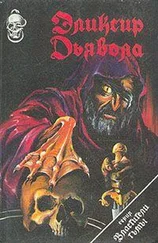Роберт Чамберс - A Young Man in a Hurry
Здесь есть возможность читать онлайн «Роберт Чамберс - A Young Man in a Hurry» весь текст электронной книги совершенно бесплатно (целиком полную версию без сокращений). В некоторых случаях можно слушать аудио, скачать через торрент в формате fb2 и присутствует краткое содержание. Год выпуска: 2014, Издательство: epubBooks Classics, Жанр: Классическая проза, на английском языке. Описание произведения, (предисловие) а так же отзывы посетителей доступны на портале библиотеки ЛибКат.
- Название:A Young Man in a Hurry
- Автор:
- Издательство:epubBooks Classics
- Жанр:
- Год:2014
- ISBN:нет данных
- Рейтинг книги:5 / 5. Голосов: 1
-
Избранное:Добавить в избранное
- Отзывы:
-
Ваша оценка:
- 100
- 1
- 2
- 3
- 4
- 5
A Young Man in a Hurry: краткое содержание, описание и аннотация
Предлагаем к чтению аннотацию, описание, краткое содержание или предисловие (зависит от того, что написал сам автор книги «A Young Man in a Hurry»). Если вы не нашли необходимую информацию о книге — напишите в комментариях, мы постараемся отыскать её.
A Young Man in a Hurry — читать онлайн бесплатно полную книгу (весь текст) целиком
Ниже представлен текст книги, разбитый по страницам. Система сохранения места последней прочитанной страницы, позволяет с удобством читать онлайн бесплатно книгу «A Young Man in a Hurry», без необходимости каждый раз заново искать на чём Вы остановились. Поставьте закладку, и сможете в любой момент перейти на страницу, на которой закончили чтение.
Интервал:
Закладка:
Far on the clearing's dusky edge a white–throated sparrow called persistently to a mate that did not answer.
If Helm felt alarm or feared treachery his voice did not betray it. "What is the trouble?" he demanded, less roughly.
She said, without looking at him: "I have deceived you. There was a letter for you to–day. It came apart and—I found—this—"
She held out a bit of paper. He took it mechanically. His face had suddenly turned gray.
The paper was fibre paper. He stood there breathless, his face a ghastly, bloodless mask; and when he found his voice it was only the ghost of a voice.
"What is all this about?" he asked.
"About fibre paper," she answered, looking up at him.
"Fibre paper!" he repeated, confounded by her candor.
"Yes—government fibre. Do you think I don't know what it is?"
For the first time there was bitterness in her voice. She turned partly around, supporting her body on one arm. "Fibre paper? Ah, yes—I know what it is," she said again.
He looked her squarely in the eyes and he saw in her face that she knew what he was and what he had been doing in Nauvoo. The blood slowly stained his pallid cheeks.
"Well," he said, coolly, "what are you going to do about it?"
His eyes began to grow narrow and the lines about his mouth deepened. The criminal in him, brought to bay, watched every movement of the young girl before him. Tranquil and optimistic, he quietly seated himself on the wooden steps beside her. Little he cared for her and her discovery. It would take more than a pretty, lame girl to turn him from his destiny; and his destiny was what he chose to make it. He almost smiled at her.
"So," he said, in smooth, even tones, "you think the game is up?"
"Yes; but nothing need harm you," she answered, eagerly.
"Harm me!" he repeated, with an ugly sneer; then a sudden, wholesome curiosity seized him, and he blurted out, "But what do you care?"
Looking up at him, she started to reply, and the words failed her. She bent her head in silence.
"Why?" he demanded again.
"I have often seen you," she faltered; "I sometimes thought you were unhappy."
"But why do you come to warn me? People hate me in Nauvoo."
"I do not hate you," she replied, faintly.
"Why?"
"I don't know."
A star suddenly gleamed low over the forest's level crest. Night had fallen in Nauvoo. After a silence he said, in an altered voice, "Am I to understand that you came to warn a common criminal?"
She did not answer.
"Do you know what I am doing?" he asked.
"Yes."
"What?"
"You are counterfeiting."
"How do you know," he said, with a touch of menace in his sullen voice.
"Because—because—my father did it—"
"Did what?"
"Counterfeited—what you are doing now!" she gasped. "That is how I know about the fibre. I knew it the moment I saw it—government fibre—and I knew what was on it; the flame justified me. And oh, I could not let them take you as they took father—to prison for all those years!"
"Your father!" he blurted out.
"Yes," she cried, revolted; "and his handwriting is on that piece of paper in your hand!"
Through the stillness of the evening the rushing of a distant brook among the hemlocks grew louder, increasing on the night wind like the sound of a distant train on a trestle. Then the wind died out; a night bird whistled in the starlight; a white moth hummed up and down the vines over the porch.
"I know who you are now," the girl continued; "you knew my father in the Bureau of Engraving and Printing."
"Yes."
"And your name is not Helm."
"No."
"Do you not know that the government watches discharged employés of the Bureau of Engraving and Printing?"
"I know it."
"So you changed your name?"
"Yes."
She leaned nearer, looking earnestly into his shadowy eyes.
"Do you know that an officer of the secret service is coming to Nauvoo?"
"I could take the plate and go. There is time," he answered, sullenly.
"Yes—there is time." A dry sob choked her. He heard the catch in her voice, but he did not move his eyes from the ground. His heart seemed to have grown curiously heavy; a strange inertia weighted his limbs. Fear, anger, bitterness, nay, revenge itself, had died out, leaving not a tranquil mind but a tired one. The pulse scarcely beat in his body. After a while the apathy of mind and body appeared to rest him. He was so tired of hate.
"Give me the keys," she whispered. "Is it in there? Where is the plate? In that room? Give me the keys."
As in a dream he handed her his keys. Through a lethargy which was almost a stupor he saw her enter his house; he heard her unlock the door of the room where his plates lay. After a moment she found a match and lighted the candles. Helm sat heavily on the steps, his head on his breast, dimly aware that she was passing and repassing, carrying bottles and armfuls of tools and paper and plates out into the darkness somewhere.
It may have been a few minutes; it may have been an hour before she returned to him on the steps, breathing rapidly, her limp gown clinging to her limbs, her dark hair falling to her shoulders.
"The plates and acids will never be found," she said, breathlessly; "I put everything into the swamp. It is quicksand."
For a long time neither spoke. At length she slowly turned away towards the gate, and he rose and followed, scarcely aware of what he was doing.
At the gate she stooped and pushed a dark object out of sight under the bushes by the fence.
"Let me help you," he said, bending beside her.
"No, no; don't," she stammered; "it is nothing."
He found it and handed it to her. It was her crutch; and she turned crimson to the roots of her hair.
"Lean on me," he said, very gently.
The girl bit her trembling lip till the blood came. "Thank you," she said, crushing back her tears; "my crutch is enough—but you need not have known it. Kindness is comparative; one can be too kind."
He misunderstood her and drew back. "I forgot," he said, quietly, "what privileges are denied to criminals."
"Privilege!" she faltered. After a moment she laid one hand on his arm.
"I shall be very glad of your help," she said; "I am more lame than I wish the world to know. It was only the vanity of a cripple that refused you."
But he thought her very beautiful as she passed with him out into the starlight.
Marlitt's Shoes
I
Through the open window the spring sunshine fell on Calvert's broad back. Tennant faced the window, smoking reflectively.
"I should like to ask a favor," he said; "may I?"
"Certainly you may," replied Calvert; "everybody else asks favors three hundred and sixty–five times a year."
Tennant, smoking peacefully, gazed at an open window across the narrow court–yard, where, in the sunshine, a young girl sat sewing.
"The favor," he said, "is this: there is a vacancy on the staff, and I wish you'd give Marlitt another chance."
"Marlitt!" exclaimed Calvert. "Why Marlitt?"
"Because," said Tennant, "I understand that I am wearing Marlitt's shoes—and the shoes pinch."
"Marlitt's shoes would certainly pinch you if you were wearing them," said Calvert, grimly. "But you are not. Suppose you were? Better wear even Marlitt's shoes than hop about the world barefoot. You are a singularly sensitive young man. I come up–town to offer you Warrington's place, and your reply is a homily on Marlitt's shoes!"
Calvert's black eyes began to snap and his fat, pink face turned pinker.
"Mr. Tennant," he said, "I am useful to those who are useful to me. I am a business man. I know of no man or syndicate of men wealthy enough to conduct a business for the sake of giving employment to the unsuccessful!"
Читать дальшеИнтервал:
Закладка:
Похожие книги на «A Young Man in a Hurry»
Представляем Вашему вниманию похожие книги на «A Young Man in a Hurry» списком для выбора. Мы отобрали схожую по названию и смыслу литературу в надежде предоставить читателям больше вариантов отыскать новые, интересные, ещё непрочитанные произведения.
Обсуждение, отзывы о книге «A Young Man in a Hurry» и просто собственные мнения читателей. Оставьте ваши комментарии, напишите, что Вы думаете о произведении, его смысле или главных героях. Укажите что конкретно понравилось, а что нет, и почему Вы так считаете.












